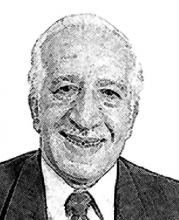You are here
A new chapter of democratic history
Sep 24,2016 - Last updated at Sep 24,2016
Jordanians this week ushered in a new chapter of their democractic history.
The new Parliament, the 18th, had the names of its elected members declared, while 1.4 million Jordanians were denied the right to vote because they live abroad.
Many advanced countries allow their citizens who live abroad to participate in choosing their representatives, who decide their future.
Turkey and Israel in our region ask their embassies to supervise the balloting for those living abroad.
It is an irony that the total number of those who voted in Jordan is the same as that of Jordanians abroad eligible to vote.
The second disadvantage in this year’s elections is that it denied members of the armed forces the possibility to vote, though soldiers are citizens too, with equal right to choose the candidates who will legislate for them their future.
It is clear that there is a unanimous opinion that the election process was transparent and honest, and that there was no rigging or manipulation of votes, of the sort two former prime ministers admitted regarding former elections, yet the new Parliament will cause much headache to any future government due to the calibre of the new candidates.
The reasons are clear: Dr Abdullah Akayleh, a former minister and member of Parliament, had been marginalised by governments for tens of years.
The Muslim Brotherhood chose him to top their list of Islah and to have a future prominent role in coagulating blocs within the 18th Parliament.
He is qualified to expand the Islamic bloc in Parliament to more than the current 15 members in the 130-member Parliament.
When the new Cabinet is elected by Parliament, as the law dictates, Akayleh will be the winning horse.
Another prominent figure in the new Parliament is Saleh Armouti, a former elected head of the Jordan Bar Association who had volunteered to defend former Iraqi president Saddam Hussein in Baghdad and who enjoys the support of a vast network of sympathisers among all strata of society.
Being an Islamist, but not an organised member of the Muslim Brotherhood, he is qualified to form the strongest lobby within the 18th Parliament due to his accumulated experience as head of the bar association for several years.
A third prominent figure is Khaled Ramadan, who will most likely be a counter to the Islamic lobby of Akayleh and Armouti.
A Jordanian analyst said: “If Akayleh turns out to be another Islamist Leith Shubeilat, Ramadan will be another leftist Toujan Feisal.” But will the 18th Parliament, its new heavy battery of members, have an impact on the course of developments in the country?
Definitely not, since the constitutional amendments endorsed six months ago will guarantee a smooth flow of our democratic process.













